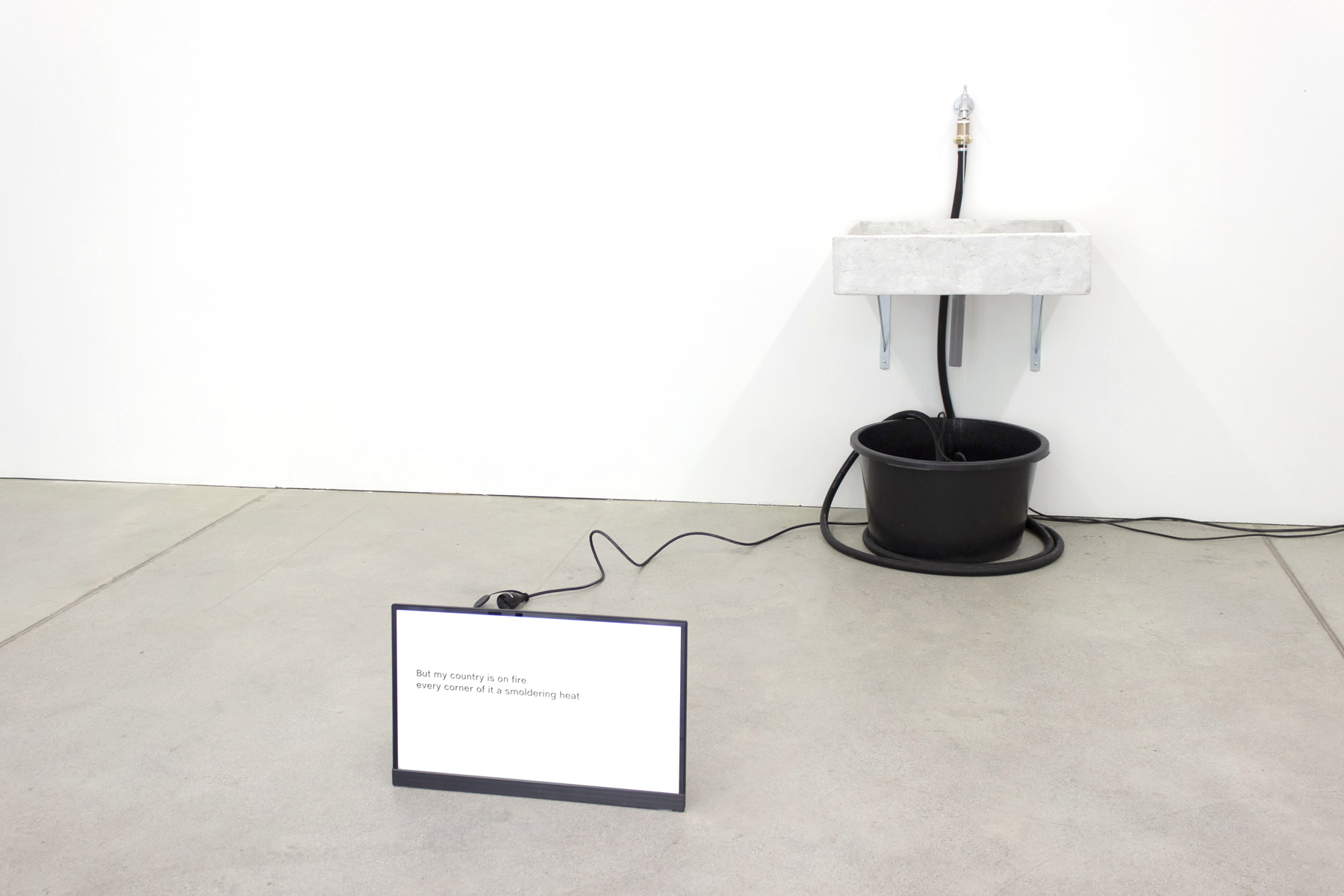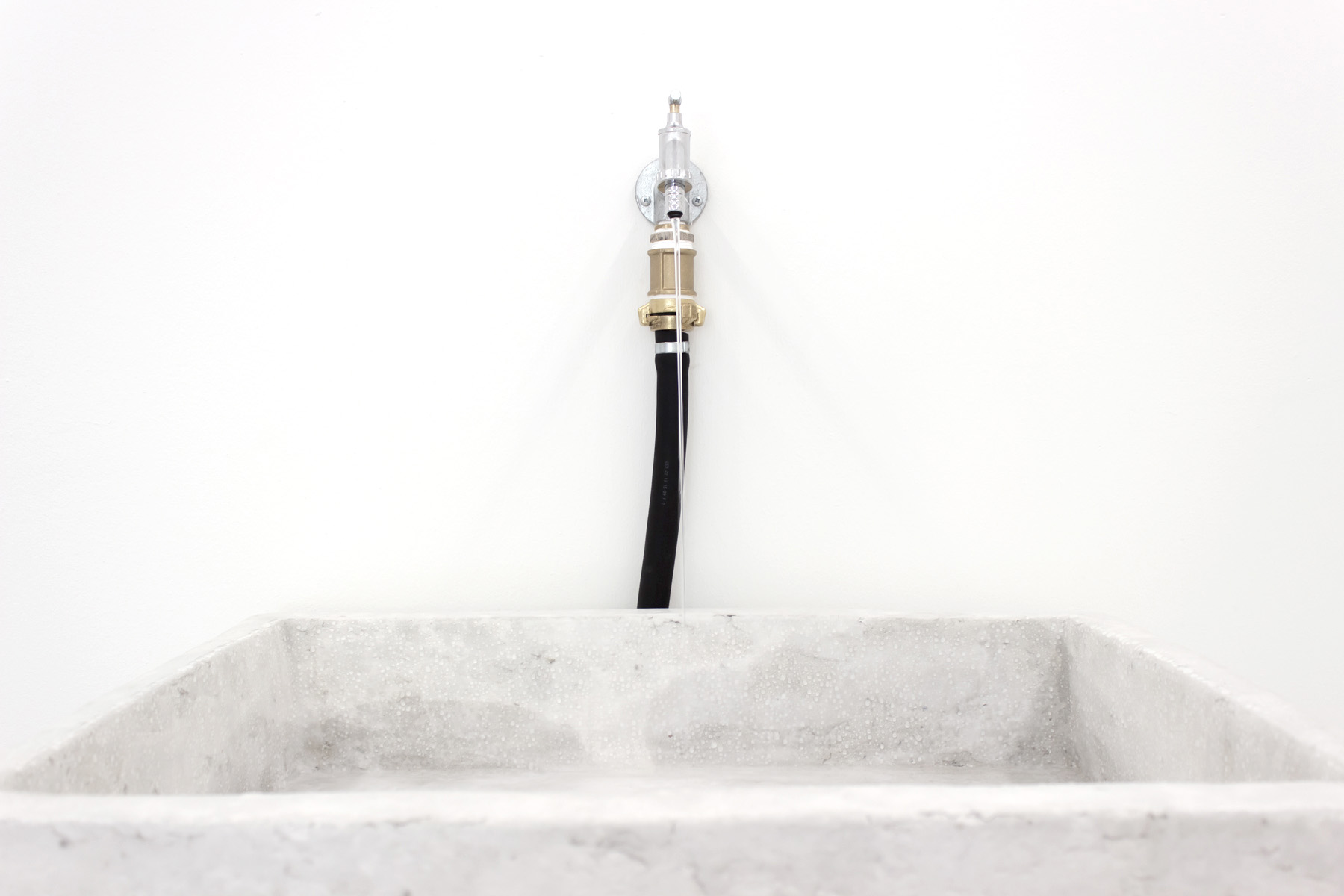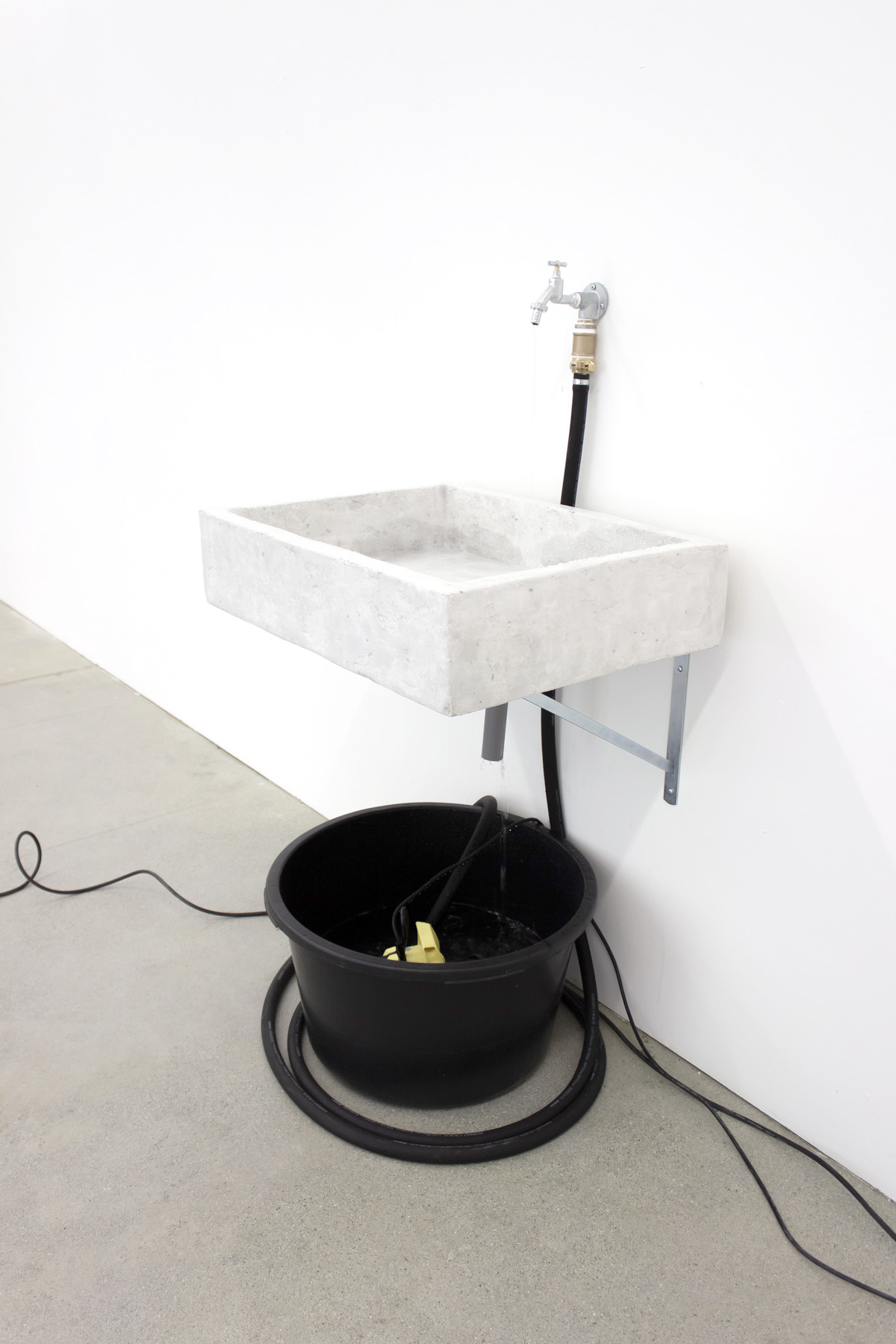
Placed behind the screen is a sink made of paper, sealed with petroleum-based paraffin. A dirty water pump transports the water from a plastic basin into the water circuit of the sink. With each conveying and running down,
the water is increasingly contaminated with and cleansed of the paraffin. The only noise that can be heard in the installation is the idyllic murmur of the running water intertwining with the ominous hum of the pump motor.
Displayed on the screen in front of the sink are poems by Ken Saro-Wiwa, who led the peaceful protests by the Ogoni People against the Nigerian military and the oil company Shell BP and Titilope Sonuga, who represents a contemporary voice of feminist and postcolonial poetry in Nigeria.
The work refers in particular to the ongoing practice of necropolitics by transnational corporations in Nigeria – deciding »who matters and who does not, who is disposable and who ist not.«¹. It is not only a reminder of these crimes but also a reminder of the relentless work on peaceful activism, education, and the demand for justice in the Niger Delta.
[1] Mbembe, Achille; Meintjes Libby: Necropolitics. In: Public Culture, Volume 15, Nr. 1, Winter 2003. Durham: Duke University Press. 11-40.


Songs in a Time of War, 2019
paper sink 70 x 45 x 20 cm sealed with paraffin, industrial hose, dirty water pump, PVC basin, video 7’10“
poems by Titilope Sonuga and Ken Saro-Wiwa